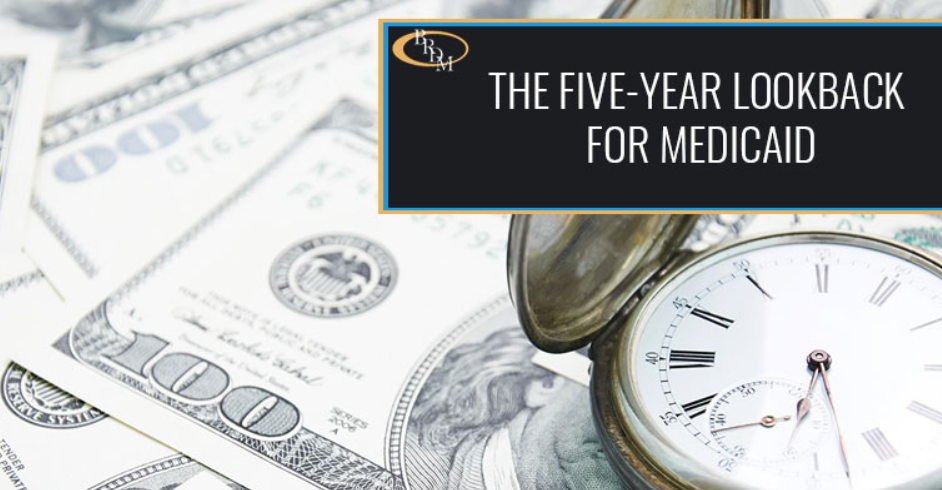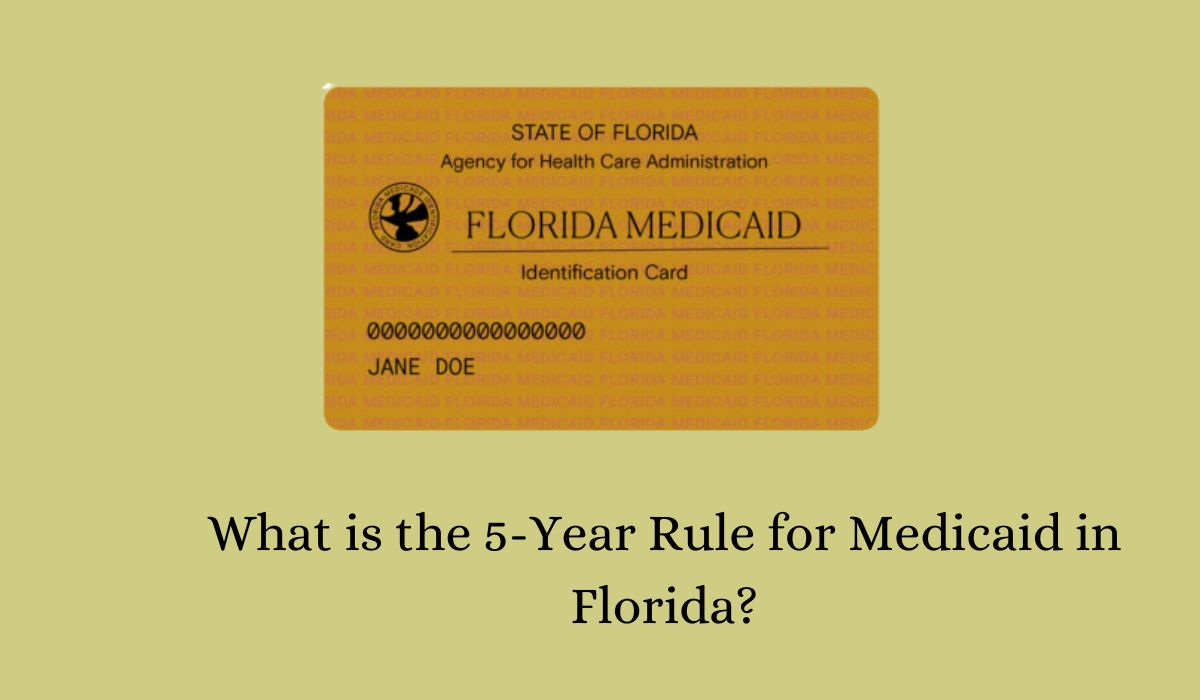If you live in Florida and are considering applying for Medicaid, it’s important to understand the “5-year rule.” This rule is also known as the “look-back period” and it can impact your eligibility for Medicaid benefits. In this article, I’ll explain what the 5 year rule is, why it exists, and how it affects Medicaid applicants in Florida.
What is the 5-Year Rule?
The 5 year rule for Medicaid in Florida is a requirement that states any transfer of assets made within the last 5 years will be reviewed and potentially penalized when determining eligibility for long-term care benefits.
This means that if you have transferred or given away assets, such as money or property, within the past 5 years, those transfers may impact your ability to receive Medicaid benefits.

Why Does the 5-Year Rule Exist?
The purpose of the 5-year rule is to prevent individuals from giving away their assets for the sole purpose of qualifying for Medicaid benefits. This ensures that those who truly need financial assistance with long-term care are able to receive it.
By reviewing transfers made within the last 5 years, Medicaid can determine if an applicant has attempted to hide assets or manipulate their finances in order to qualify for benefits.
How Does the 5 Year Rule Affect Medicaid Applicants?
If you have made any transfers of assets within the last 5 years, those transfers will be reviewed during the application process for Medicaid benefits.
If it is determined that these transfers were made in order to qualify for benefits, you may face a penalty period where you will not be eligible for Medicaid coverage.
This penalty period is calculated based on the amount of assets transferred and the average cost of long-term care in your area.
Exceptions to the 5 Year Rule
There are certain exceptions to the 5 year rule that may allow you to transfer assets without facing a penalty. These include transfers made to spouses, minor children, or disabled individuals.
Additionally, transfers made for a fair market value or to purchase a life estate are also exempt from the 5 year rule. You should consult with an attorney or financial advisor before making any transfers if you are planning on applying for Medicaid benefits in Florida.
What Assets Are ‘Countable’ in the Five-Year Lookback for Medicaid in Florida?
Not all assets are subject to the five-year lookback period for Medicaid eligibility in Florida. Certain assets are considered exempt and will not be reviewed or penalized during the application process.
Countable Assets
- Cash and Bank Accounts: This includes checking and savings accounts, as well as cash on hand.
- Investments: Stocks, bonds, mutual funds, and other investment accounts are countable assets.
- Real Estate: Other than the primary residence, additional real estate holdings are usually countable. The primary home is exempt only if the equity value is below a certain limit and the applicant intends to return to it.
- Vehicles: While one vehicle is often exempt, additional vehicles may be considered countable assets.
- Retirement Accounts: In some cases, retirement accounts like IRAs and 401(k)s might be countable, especially if the applicant is of age to withdraw from them without penalty.
- Life Insurance Policies: The cash value of certain life insurance policies can be countable.
- Additional Personal Property: This can include other valuable items like art, jewelry, or collectibles, depending on their value and nature.
Non-Countable Assets
- Primary Residence: The applicant’s home is generally exempt, provided the equity value is within the prescribed limit and there is an intent to return to the home.
- One Vehicle: A single vehicle, regardless of its value, is usually exempt.
- Personal Belongings: Clothing, furniture, and other personal effects are typically not countable.
- Prepaid Funeral Arrangements: If these arrangements are made and paid for in advance, they are usually exempt.
- Certain Types of Trusts: Some trusts, particularly those designed for disabled individuals, may be exempt.
- Property Used for Self-Support: This includes tools, machinery, or other equipment used for work or business purposes.
Special Considerations
- Spousal Implications: There are special rules for assets when one spouse is applying for Medicaid and the other is not. These rules allow for the non-applicant spouse to retain a certain amount of the couple’s assets.
- Transfers Between Spouses: Generally, transfers of assets between spouses are not penalized during the lookback period.
- Intent to Return Home: For a primary residence to be exempt, there must be an expressed or evident intent by the applicant to return home.
How Can You Prepare for the 5-Year Rule?
If you are considering applying for Medicaid in Florida, it’s always best to plan ahead and be aware of how the 5 year rule may affect your eligibility. Here are some tips to help you prepare:
- Consult with an Attorney or Financial Advisor: Before making any transfers or changes to your assets, it’s important to seek professional advice from a lawyer or financial advisor who is familiar with Medicaid eligibility.
- Consider Long-Term Care Insurance: Investing in a long-term care insurance policy can help protect your assets and provide coverage for future medical expenses.
- Create an Estate Plan: Having a well-thought-out estate plan in place can help protect your assets and ensure they are not subject to the 5-year rule.
- Be Aware of Timing: It’s important to understand that the 5 year lookback period begins on the date of application, not when the transfer was made. So, if you think you may need Medicaid coverage in the future, it’s best to plan accordingly and make any necessary transfers well in advance.
By keeping these tips in mind and planning ahead, you can ensure that the 5 year rule will not affect your eligibility for Medicaid benefits. It’s important to be honest and transparent during the application process to avoid any potential penalties or delays in coverage.
With proper preparation and guidance, you can receive the financial assistance you need for long-term care without running into issues with the 5 year rule.
So, don’t wait until you need it to start planning for your future – take action now and secure a comfortable and worry-free retirement.
If you have any additional questions about the 5 year rule or Medicaid eligibility in Florida, please consult with a professional advisor for personalized guidance.
